NOTHING GOLD CAN STAY
Nature’s first green is gold,
Her hardest hue to hold
Her early leaf’s a flower;
But only so any hour.
Then leaf subsides to leaf.
So Eden sank to grief.
So dawn goes down to day.
Nothing gold can stay
I am not a poet, but there are a few poets and poems that speak to me and Nothing Gold Can Stay, by Robert Frost, is one of them. For a few weeks I will be a prisoner in my forest paradise, an opportunity to notice more carefully the native spring ephemerals that surround our home in several acres of old-growth forest near Van Meter, Iowa. As I practice with my new knee, I have time to study the temporal nature of the plants that inhabit our native woodland.
Take a walk with me. Step carefully. Lift the leaves. Listen to the bees.
Spring flowers are not showoffs like the iris in my grandmother’s garden on the farm, the roses in my mother’s garden out the picture window, the daylilies in my Main Street butterfly garden, or the symmetrical Victorian borders of the governor’s mansion.
Our forest creates its canopy so quickly that little light seeps in. In early spring, we enjoy the introverted blossoms, or our wildflowers “but only for an hour” and only if we search.
This year the tiny Spring Beauties and Dutchman’s Britches carpeted the forest floor, before the shaggy Virginia bluebells fluttered above them, followed by May Apples hiding their blossoms under big green parasols. And if you don’t check under the shiny green heart-like leaves of the wild ginger for the tri-cornered blossoms, you’ll miss their speckled red blooms.
Red and white bleeding hearts tremble by the front door followed by the Jacks hiding in their pulpits. Don’t miss Solomon Seals’ string of pearls dangling just beneath the slender fronds. One of several frogs presides enjoying his mug of coffee on the front porch. Across the courtyard another looks through his binoculars at the red headed woodpeckers, the flickers, and the grossbeaks.
Under the White Oak, the Foamy Flowers swish their small plumes, and Columbines quiver among the unfurling ferns. Beside the driveway the mother trees nurture their offspring. They recognize their sprouts: Red Oaks know Red Oaks; White Oaks and Basswoods know and care for their own, connected underground by an internet of tiny strings they use to communicate like the world wide web.
Further back, the brambles reach forward hoping to put down roots, daring me to reach in there with clippers to stop their infiltration. A few Sweet Williams have found a foothold among the dainty wild geraniums and Jacob’s Ladders.
Five year-old Amelia has brought me a bouquet of something I hadn’t noticed in the forest, called Virginia Waterleaf. We agree they look like tiny fireworks! There she is now, chalking a row of bright red flowers that could never survive in our dappled sunlight. She has found a hideout in one of our oldest trees, a Basswood, hollowed out inside, just big enough for her to fit. A Burr Oak stands sentinel at the entry to the back forest along with a Shagbark Hickory. If I am watchful, I’ll find the day or two when the Shagbark Hickories open their leaves into what looks like pink orchids. All these years of harvesting fall hickory nuts, I never looked up to see its springtime show.
The word ephemeral means, lasting for a very short time. Ephemeral plants, have a very short life cycle. Mother Nature teaches us a vital lesson: nothing gold can stay.
P.S. If you’re going to spend any time in a forest this summer with 4-11 year-olds, find copy of Peter Wohloben’s Can You Hear the Trees Talking: Discovering the Hidden Life of the Forest. If your library doesn’t have a copy, donate one. It’s one of the best books ever for understanding everything happening in a forest, for kids and grownups too. (Great photos, understandable descriptions, fascinating, easy projects to stimulate the senses.)


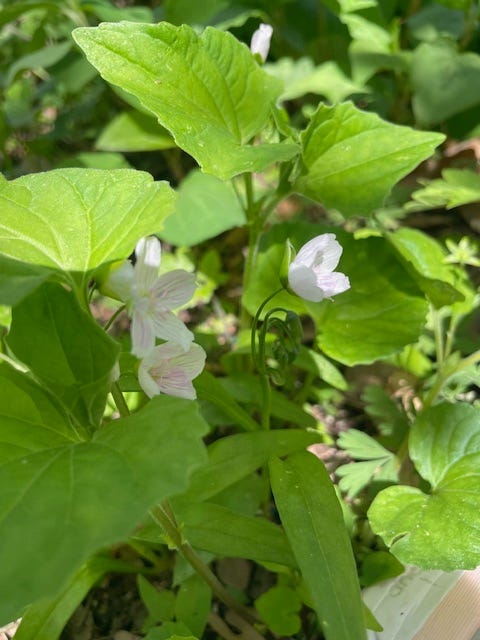
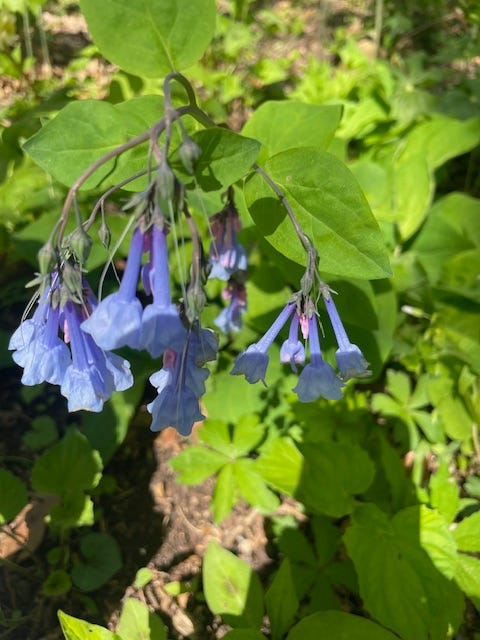
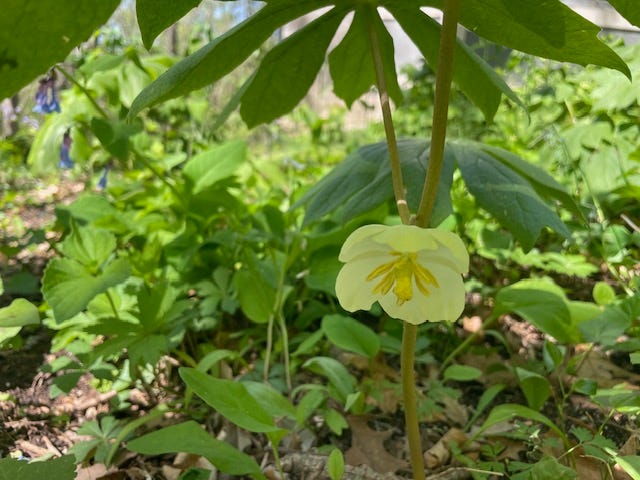
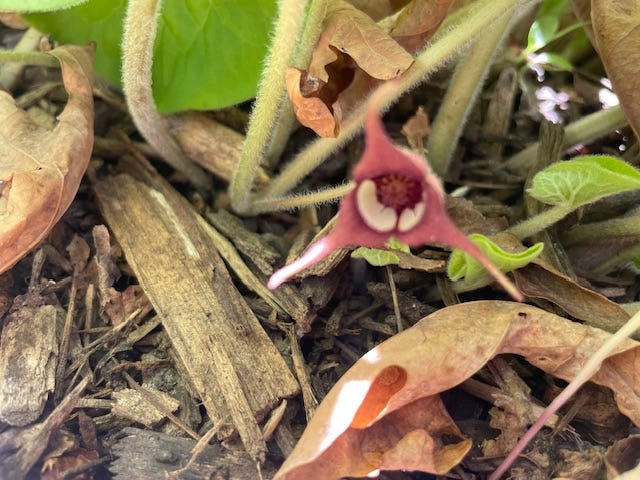
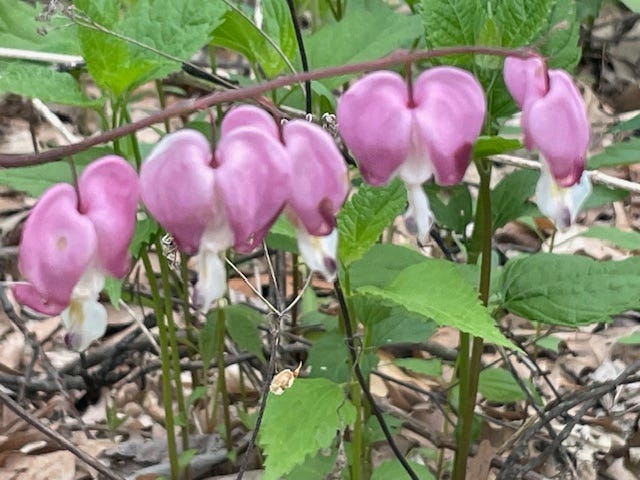


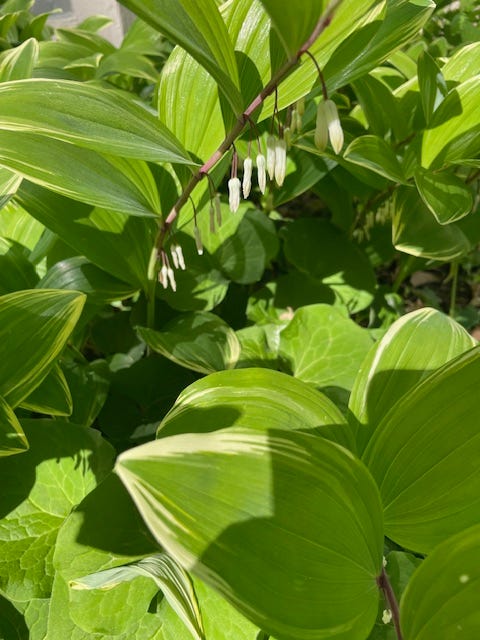
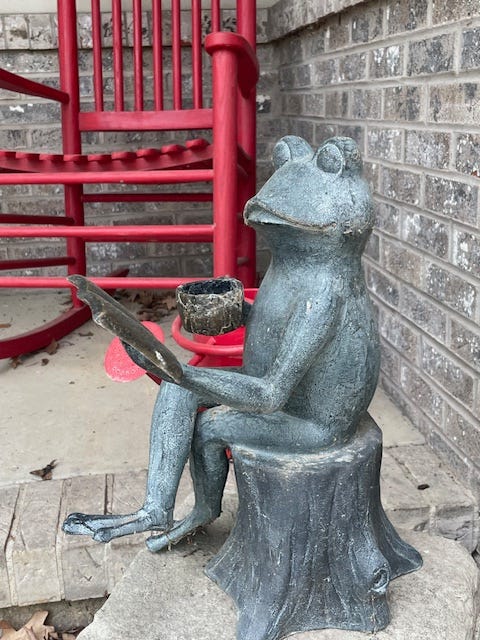



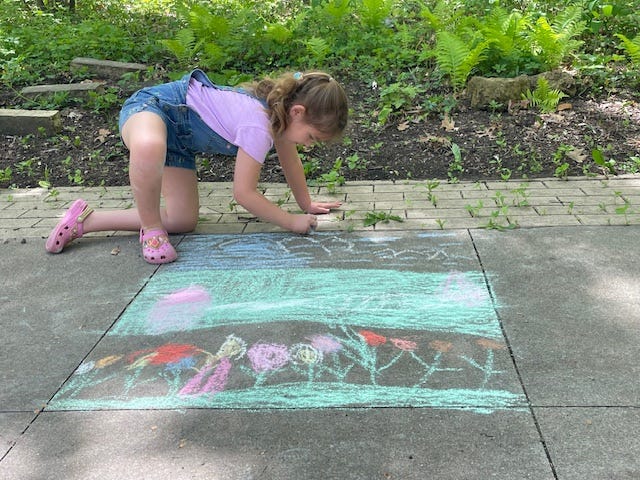
“I understood at a very early age that in Nature, I felt everything I should feel in church but never did. Walking in the woods, I felt in touch with the universe and with the spirit of the universe.” Alice Walker
I love your immensely powerful exhortation -- "If your library doesn’t have a copy, donate one."